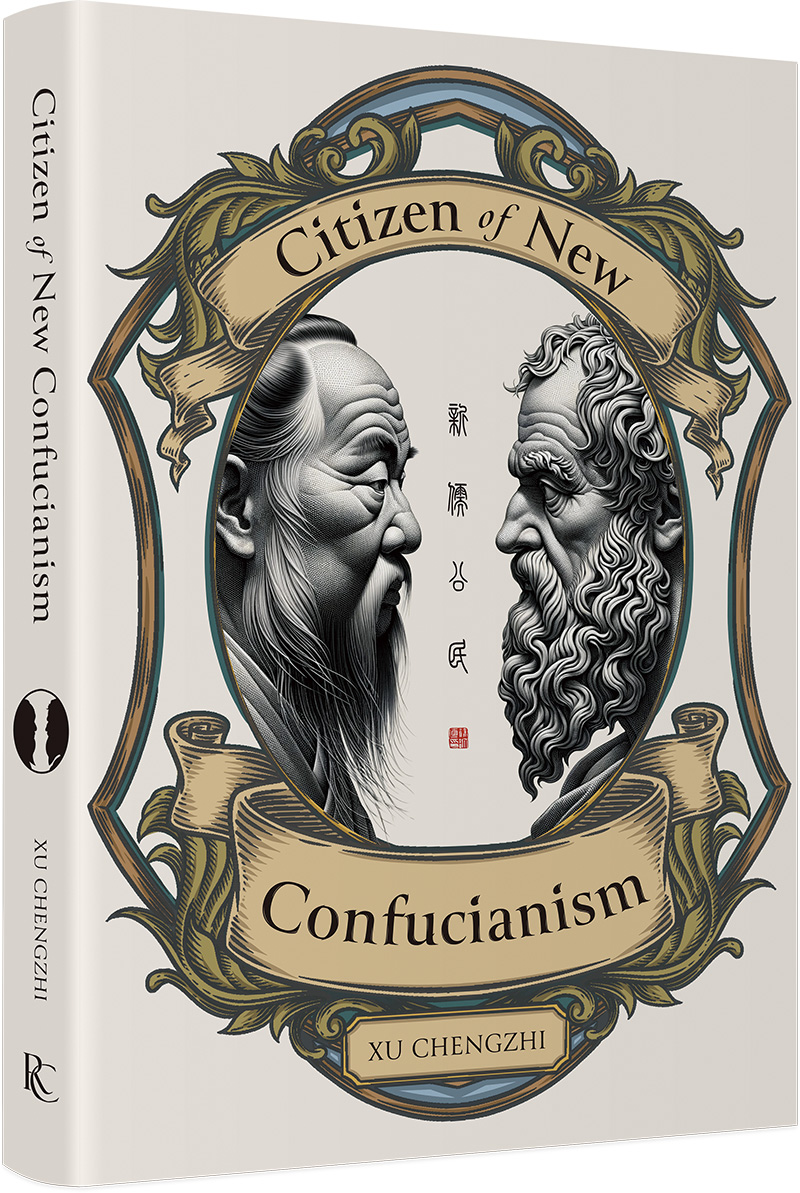
It is never difficult to imagine a good society, but it is never easy to provide a comprehensive program to construct one. In the last two hundred years, Anglo-Saxon economics which prescribes that human nature is self-interested and the spontaneous order originating from individual actions can produce the ideal society has predominated people’s brains when discussing how to achieve common welfare, although in the twentieth-century people have witnessed so many economic crises caused by unscrupulous craziness. Karl Marx proposed to abolish the market system; John Maynard Keynes believed that the government’s expenditure should be able to cure the deficiencies. However, with the financial crisis in 2008 and the persistent existence of stagflation after 2021, the hope for a better society is becoming weaker.
In this context, Chengzhi Xu publishes his book, Citizen of New Confucianism with Royal Collins Publishing Group. Xu believes that Confucianism with renewed doctrines can offer useful instructions when thinking about the human future. Whether in economics, sociology, philosophy, etc., few doubt that the relation between Confucianism and the modern world has been an intriguing issue. Max Weber in his Religion of China famously argued that Confucian values pose huge obstacles to rationalization and modernization of the Chinese society. Different from the dismal prediction, this book is a thought-provoking exploration of the intersection of Confucian philosophy and the modern economy. Divided into two parts, it skillfully navigates the doctrines of Confucianism, highlighting their potential symbiosis with contemporary economic principles.
In Part One, Xu delves into the fundamental tenets of Confucianism, unravelling the intricate tapestry of traditional values. The author examines the feasibility of a harmonious coexistence between these values and the demands of the modern economy. For example, Confucius in his Analects proposed that people should seek a high moral level, practice “Goodness (‘Ren’)”, and reach the land of “Junzi”. “Junzi” is a core concept of Confucius and it describes a kind of person who is friendly, loyal, righteous, filial, courageous and tranquil. Confucianism requires its followers to achieve such a goal. Sensitive readers may now realize that such a definition of human beings surpasses the assumption of modern economics which presumes that human beings are rational and always driven by self-interest. Introducing the basic doctrines of Confucianism, this section serves as a solid foundation, establishing the relevance of Confucianism in the context of today’s rapidly evolving economic landscape.
Furthermore, the second part of the book takes a bold step by proposing revisions to economic theories through the infusion of Confucian ideas. Xu’s exploration of how the spirits of Confucianism could contribute to the enhancement of economic models is both innovative and daring. The author engages with economic theories, scrutinizing them through the lens of Confucian principles, and suggests potential modifications that could lead to a more ethical, sustainable, and equitable economic system. For instance, the author amends the concept of “transaction cost” via the introduction of his own ideas and mathematical proof. He takes further steps to construct a constellation of economic principles dealing with wealth distribution, growth, inequality, etc. While Xu provides convincing proof through mathematical equations and theorems, readers without relevant experience can also find it easy to understand his core idea.
Therefore, one commendable aspect of the book is Xu’s ability to articulate complex philosophical concepts in a manner accessible to a broad audience. The book successfully bridges the gap between academic discourse and practical application, making it relevant not only to scholars but also to policymakers and individuals interested in the intersection of ethics and economics. The author’s argument for the integration of Confucian values into economic discourse prompts readers to reconsider prevailing economic paradigms. The persuasive case presented in the book challenges conventional thinking, encouraging a broader dialogue on the potential contributions of Confucianism to the global economic landscape.
While the book may be perceived as advocating for a paradigm shift, Xu carefully balances idealism with pragmatism. The proposals put forth are grounded in a realistic understanding of the challenges posed by the contemporary economic milieu. In addition, as a renowned public diplomat, Xu aims to utilize Confucian values to make the world better. After reading the book, it seems that Xu has the implicit belief that current chaos in the world is caused by economic greed and irresponsible governments’ actions in international relations. If we introduce Confucian values into diplomatic strategies, which call for harmony and benign symbiosis, not only domestic societies but also international communities will benefit.
In conclusion, Citizen of New Confucianism stands as a pioneering work that not only explores the compatibility of Confucianism with modern economic principles but also suggests actionable revisions to prevailing economic theories. In the last decades, the spectacular growth of economies in Asian countries in which Confucian values are popular, including South Korea, Japan, Singapore and Mainland China, traditional visions about their position in modern society are being reconsidered. Xu’s insightful analysis opens up new avenues for discussion and reflection, making this book a valuable contribution to the fields of philosophy, economics, and the ongoing discourse on shaping a more ethical and sustainable future.
***
George Hong Jiang is currently a researcher at the Max Weber Institute of Sociology at Heidelberg University, Germany, and chief economist at the Bank of China in Frankfurt am Main.

A short time ago I began to try to understand and adopt Neo-Confucianism and I consider this work of the author to be something wonderful that I hope to be able to read once I am better trained in economic and Confucian matters